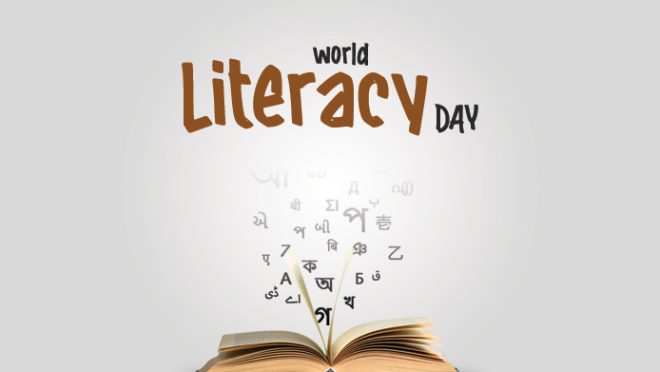World Literacy Day: Literacy vs Education, the odd couple that keeps us sane
World Literacy Day: Literacy vs Education, the odd couple that keeps us sane

As we rejoice in World Literacy Day, it’s high time to shed light on something very awkward that people just don’t seem to talk about: the difference between literate and educated.
That would be something like comparing Google skills with fact-checking skills—both important, yet hardly comparable.
Let us dive into this strange pairing of human development and understand why they are both so crucial in today’s time.
Literacy: The door opener
Literacy is the door to the outside world. Literacy is all about reading and writing, decoding signs, menus, and text messages that help one get by in life.
Literate people are pros in this: they read the fine print in the contracts, scroll through news headlines, and find memes faster than the pronunciation of the words “terms and conditions.”
But literacy alone doesn’t make you educated. All being literate provides is access to information: it’s knowing how to read the Ikea manual. But whether or not you can assemble that bookshelf without it looking like modern art? That’s where education steps in.
Education: The navigator
Education is the next step up from literacy—it’s knowing how to ”use” that information effectively.
It means understanding that while reading is important, interpreting what you read is even more crucial.
Educated people can sift through the mountains of content thrown at them daily and figure out what actually matters. They won’t just read the Ikea instructions; they’ll know that it’s okay to improvise when the screws don’t quite match the diagrams.
In real life, educated people know the shortcuts. They know that not all gospel truth is written down, or it’s definitely not on the internet.
The everyday showdown: Who does it better?
Now, let’s break down some basic scenarios to show how each—literate and educated—people do things differently.
Scenario 1: Directions
Literate people can read maps, road signs, and GPS instructions with no problem. They follow the “turn left in 300 metres” command as if their life depends upon it.
Educated people, however, know that no GPS system is foolproof. They expect wrong turns and recalculations, and they’ve learned the most important thing to pack for a road trip is patience, and snacks.
Scenario 2: The overread
Literate people will overanalyse the simple things in life. They’ll read deep meanings into a “Good morning” text-add a smiley face emoji, and they’re ready to start a full-blown investigation.
Educated people, however, know when not to overthink things. Sometimes, “Good morning” just means “good morning.” And the smiley face? Well, it’s just a friendly way to say, “I’m not grumpy yet.”
Scenario 3: Social media
Literate people love social media-scrolling, liking, and reposting with abandon. They’ll read every headline no matter how spurious, and share quotes they assume were said by Gandhi.
Educated people use social media judiciously. They know that just because it’s in writing doesn’t make it factual and won’t hit the share button unless they’ve vetted a post themselves—because nothing kills a day quite like getting called out for sharing fake news.
Why do we need both?
Literacy and education are the yin and yang of intelligence, if you will. While literacy unlocks the door to knowledge, education serves as a compass that negotiates one through it.
Without one to complement the other, you’d be akin to owning a bicycle but not knowing how to ride it—or worse, knowing how to ride but having no idea where you’re going.
So, on this World Literacy Day, let’s celebrate both. Be literate, yes—but also strive to be educated. For while literacy gets you through the day, it’s education that helps you make sense of it. Together, they’re the odd couple that keeps us functioning in this complicated, information-heavy world.


